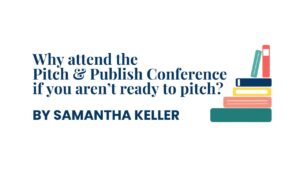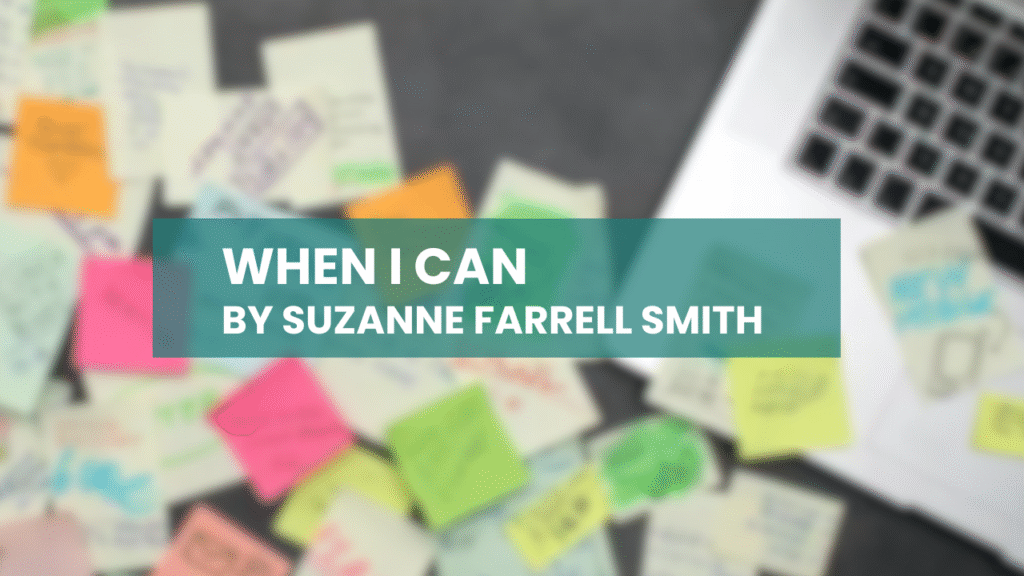BY SUZANNE FARRELL SMITH
At my first grad school program, my inaugural class was a writing-heavy course on cultural criticism, co-taught by a famous, cantankerous, prolific author. He told us, in so many words, “Writers must write every day. If you don’t write every day, you are not a writer.”
I stored that sentiment away, packed it up in my suitcase to bring to the Kenyon Review Writers Workshop the following summer. I was new to calling myself a writer. The bright, billowy “Welcome, Writers!” banner thrilled me. Day one, I pulled out that shiny little nugget of grad-school wisdom and shared it with peers. Our workshop leader quickly disabused me of the idea. “Writers write,” she said, not unkindly, “when they can.”
Nearly 20 years of writing life later, I can say that I lean in—way in—to my Kenyon instructor’s point of view.
Writers write when we can. Sometimes we write because we should, and sometimes we write because we want to. Sometimes we write because there’s a deadline, and sometimes we write because we’re in a period of remarkable drive or discipline, and sometimes we write because it’s our job and we need the money.
And a lot of times, writers don’t write. We don’t write because we don’t have time, energy, mental space, physical space, interest, health, or heart. Sometimes it’s for a day, a week, a season. Sometimes writers go a year.
I reassure students who worry when they aren’t writing that it’s okay—there are so many ways to live a writing life, even during fallow times.
- Read books, short pieces, poems, emails. Read aloud to someone. Read aloud to yourself.
- Listen to a friend’s story and think about its hook, its apex, its ending. Listen to an audiobook. Listen to a podcast episode and connect it to something you’ve read or written or want to write or want someone else to write.
- List all the ideas you have for writing. List character names, outrageous plot twists, funny things your children said in the last 72 hours. List adjectives you hope to use one day. List the places you’d visit if the world suddenly, magically became easy to traverse.
- Draw a Venn diagram of three threads you might weave in a braided essay. Draw the sequence of a story. Draw a mandala and wonder if you can turn it into a poem. Much of my writing focuses on small, strange moments. I like to sketch them before I forget. Months later, I’ll pull out the picture and get to work on the words.
- Play with art supplies and building materials. Invent a recipe. Create something three-dimensional.
- Apply to a writing conference or for a grant.
- Submit to literary magazines. Organize your spreadsheet. Research new outlets. Look at the bio of an author you like and pull up the places she’s been published.
- Subscribe to journals, magazines, newsletters, Substacks, columns. I read Anu Garg’s A.Word.A.Day every day. Some days that’s the only bit of writing life I get to breathe.
- Volunteer to read for a literary magazine or to help with an event. I volunteer at my eldest son’s school library. Reshelving books—dystopian and historical and science fiction, nonfiction on technology, on identity, on geography, on culture—immerses me in literature.
- Talk with other writers. Have a lunch. Schedule a call. Text.
- Tinker with your author website, your desk setup, your shelf organization.
- Attend an online reading or register for an author talk at your local library. Visit a literary museum. Check out WWW’s new Literary Happenings mailer.
- Move around. Walk or stretch. I can’t count the number of times an idea has hit me while swimming or driving. At a stop sign, I open my voice memo app and record my thoughts. Someday, perhaps far in the future, I’ll transcribe the memo and recognize it as the seed of something new.
To amend my grad school professor’s statement, “Writers must write.” Full stop. We write when we can and, sometimes, when we think we can’t. But writers can, and perhaps must, do all the other things too. Writers read and listen and talk. We move. We tinker.
And I’ve come to understand that fallow periods in one’s writing life are healthy. Good for the deepest earth in our minds. During fallow times, our productive, creative selves can rest and recover, eliminate pesky thoughts and habits, rejuvenate, and make for good, maybe even better, work when we are ready to dig back in.


